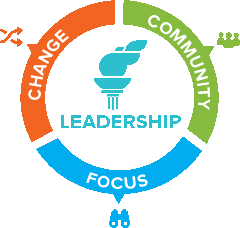
Successful leaders focus on what type of leadership is necessary before diving into the details of the task at hand. Unquestionably, supporting teachers and improving instruction is easier when you can walk down the hall into a classroom. It is tougher when instruction is online, but the role of the educational leader doesn’t change one bit: It’s still to increase the quality and reduce the variability of instruction for every student in every classroom every day.
McREL’s leadership training platform, Balanced Leadership®, was designed to build the capacity of principals to tackle come-what-may. The intent is for leaders to be intentional about the skills that are needed to accomplish the challenge at hand—any challenge. The specific leadership competencies required to navigate, say, pressure to boost scores on state tests, are the same as those required to navigate a seemingly unrelated challenge, even a pandemic. This does not mean that we use the same strategies for each task; it does mean that we determine what type of leadership is needed to accomplish the challenge.
So what, specifically, are the leadership skills required? There are three main components of effective leadership, and these components form the heart of the Balanced Leadership framework:
Managing change. School leaders need to understand why people struggle with change and what they as leaders can specifically do to support people through change. In some cases people flat-out resist change, but this is relatively rare. Mostly we see people who are willing to change but don’t have the skills to implement the new ways of doing things that are being asked for. An example appropriate for today’s new normal is online teaching. Most teachers want to do a good job of teaching virtually but may not have the skills to do so, and an effective leader recognizes that distinction.
Creating a purposeful community. We help school leaders learn to create positive school cultures, building on a shared sense of purpose and quick wins to create a sense of collective efficacy: a shared belief that together, school staff can dramatically improve student outcomes. Researchers like Roger Goddard, Wayne Hoy, Page Smith, and Scott Sweetland have demonstrated that collective efficacy among the staff is more predictive of student success than socioeconomic status or race.
Establishing a clear focus. We take school leaders on a deep dive of rigorous research on schools as represented by the five components of McREL’s What Matters Most framework. After analyzing their own school’s trajectory along these pathways of improvement and innovation, leaders can target their school improvement plans on efforts that are most likely to result in performance gains, thus avoiding allocating time, effort, and money to tactics that worked great someplace else, but might not in your school’s context.

- Are we focusing on the right work?
- How do we manage change and support individuals experiencing change?
- How do we use our shared sense of purpose to create a positive school culture?
What will tomorrow bring? All I can say for sure is that something significant will change; leaders who know how change works will bring their people through it effectively; and their students will benefit. To my eyes, the future of educational leadership looks pretty clear: continuing to help improve instruction, wherever that may occur.
Kent Davis, Ed.D., is an associate director of learning services and innovation at McREL International. To learn more about leadership training from McREL, call 800.858.6830 or email info@mcrel.org.
